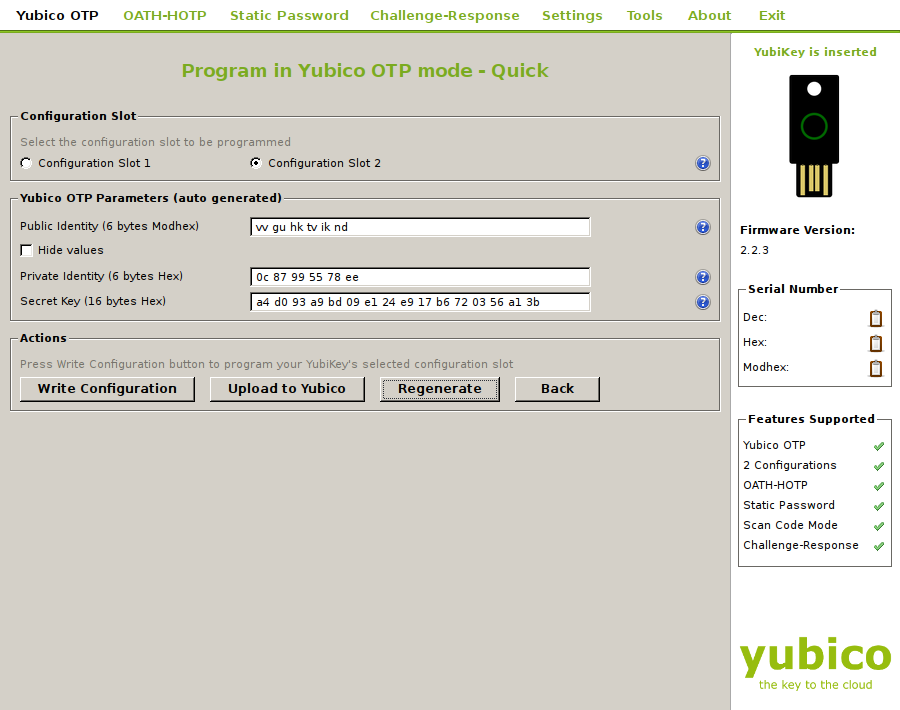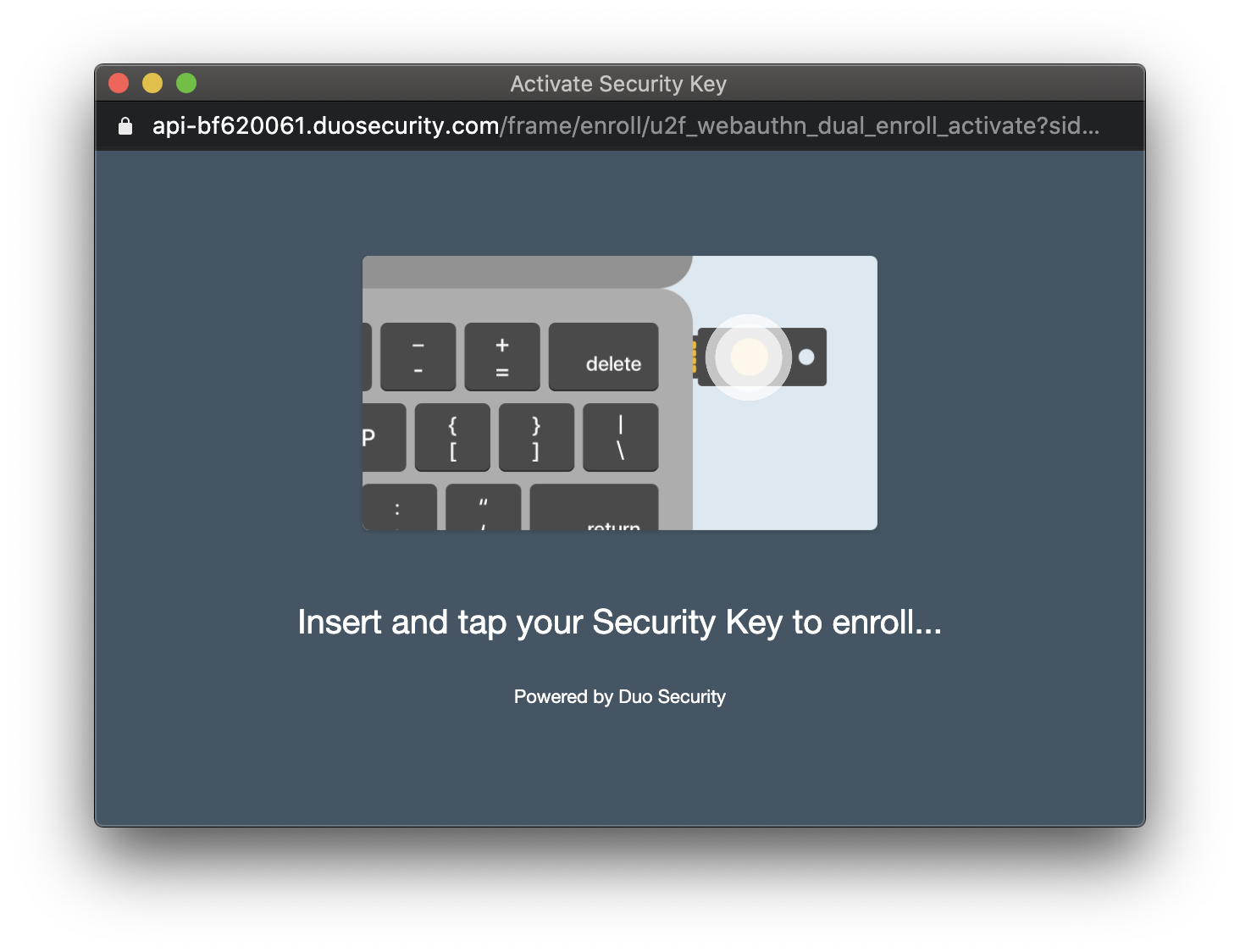
This setting is only applicable for U2F credentialsĬreated with pamu2fcfg versions v1.0.8 or earlier.


Same value used for origin is taken ("pam://$HOSTNAME" if also origin Value is specified, the identifier "pam://$HOSTNAME" is used.įor the FIDO authentication procedure. Set the relying party ID for the FIDO authentication procedure. This filename may be alternatively set to "stderr" It is not created by pam-u2f on purpose (for securityĬonsiderations). User or must exist and be a regular file for anything getting This regular file has to be created by the The virtualization software was not able to disconnect the device from the host.Filename to write debugging messages to. There's missing parameters on the passthrough and the key isn't getting passed entirely (Something CCID/FIDO/OTP related?). While the USB device is not passed through, lsusb -t shows that it's not assigned to any driver when passed through, it's owned by the usbfs driver, and the libvirt-qemu user's qemu-syst process has the device open. I tried virtualbox on the linux host and was not successful, same results as with libvirt. I've tried to passthrough the yubikey on a laptop with a windows host on virtualbox and was successful with no extra settings. The yubikey does not function on the host while the passthrough is active. The yubikey still shows up on the host after the passthrough when I run lsusb on the host. The yubikey functions on the host, yubico-piv-tool -a status prints as expected. Yubico-piv-tool -a status returns "Failed to read device". Then I try yubico-piv-tool -a status to see if the key is working. I boot the VM and verify that the usb was passed through properly with lsusb.

I'm passing through the usb using the following hostdev section: I'm using ubuntu 18.04 as both host and guest. Does anyone know what I'm doing wrong or what's wrong with my setup? So I've been trying to get a yubikey passthrough to work for a few days now with no luck.


 0 kommentar(er)
0 kommentar(er)
